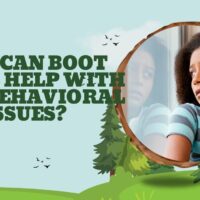Is your teen struggling with homesickness at boot camp? This guide covers the causes, symptoms, and proven solutions to help them adjust and thrive.
Sending your teen to a boot camp can be a tough decision, especially knowing it will involve a temporary separation.
Programs like boot camp for teens or military schools for teens are designed to instill discipline, resilience, and growth.
However, along this journey, one common challenge arises—teen boot camp homesickness.

For many teens, leaving the comfort of home, family, and friends to face an unfamiliar environment sparks feelings of anxiety and longing.
Understanding this emotional hurdle is the first step in helping your teen thrive in a boot camp environment.
Now, let’s see why homesickness matters and how we can better support teens through this pivotal experience.
Table of Contents
The Emotional Journey of Teens at Boot Camps

Boot camps for teens are often seen as transformative experiences.
They combine structure, physical activity, and life skills, offering a break from familiar routines and habits.
However, this drastic change isn’t always easy, and homesickness becomes one of the most significant barriers to success.
Teens at boot camps face:
- Separation anxiety: Missing parents, siblings, and even pets is natural.
- Fear of the unknown: Adjusting to a strict schedule, new social circles, and different cultural norms can be daunting.
- Emotional vulnerability: Without their usual support systems, teens often feel more emotionally exposed.
While these challenges may seem overwhelming, they are also opportunities for teens to learn self-reliance, adaptability, and emotional strength—if managed well.
Why Homesickness is a Crucial Issue to Address

Homesickness in teens isn’t just about missing home. Left unaddressed, it can spiral into deeper issues affecting a teen’s mental health and overall development.
Here’s why it’s essential to tackle this head-on:
- Emotional Impact: Homesickness can lead to sadness, anxiety, and withdrawal, making it harder for teens to engage with boot camp activities or connect with peers.
- Behavioral Changes: Teens experiencing severe homesickness may resist participation, seek ways to leave the camp, or even display disruptive behaviors.
- Mental Health Risks: When unchecked, homesickness can lead to long-term challenges like depression, low self-esteem, or social anxiety.
Acknowledging and addressing this challenge, boot camp programs and parents alike can create an environment where teens feel supported, ultimately enabling them to overcome homesickness and gain the full benefits of the experience.
Understanding Homesickness

Defining Homesickness
Homesickness is a universal emotion, yet it often hits teens at boot camps particularly hard.
To better understand this phenomenon, let’s dive into what homesickness really means, the psychological factors at play, and who might be most vulnerable to its effects.
What Is Homesickness?
Homesickness is an emotional response triggered by the separation from familiar surroundings, loved ones, and daily routines.
It’s characterized by feelings of sadness, anxiety, and longing to return home.
While it’s a natural response to change, it can become challenging when it affects a teen’s ability to adapt to a new environment, such as a boot camp for teens or a military school for teens.
For many teens, leaving home for the first time means facing a mix of excitement and apprehension.
While the structured environment of a boot camp can foster growth and discipline, the unfamiliar setting can magnify feelings of homesickness.
The Psychology Behind Homesickness

Emotional and Cognitive Factors
The root of homesickness lies in our emotional attachment to familiar surroundings.
For teens, this attachment includes family, friends, and the comfort of routines.
When removed from these, the brain reacts to the unfamiliar by releasing stress hormones, which contribute to feelings of unease.
Another factor is the fear of the unknown.
Boot camp challenges, strict schedules, and new expectations can overwhelm teens, amplifying their feelings of loneliness and displacement.
Social and Environmental Triggers
Being in an unfamiliar social environment is another trigger.
Teens may struggle to form bonds with peers or feel isolated, especially in competitive or high-pressure settings like a military school for teens.
The absence of a support system often makes the adjustment process harder.
Who is Most Vulnerable to Homesickness?

While any teen can experience homesickness, some are more susceptible than others due to emotional, social, or environmental factors.
Common Traits of Teens Prone to Homesickness
- High Dependence on Family: Teens who have not spent significant time away from their family may struggle more.
- Low Emotional Resilience: Those who lack coping mechanisms or have not been encouraged to handle challenges independently.
- Introverted Personality: Introverted teens may find it harder to connect with peers, leading to isolation.
- History of Anxiety or Depression: Teens with pre-existing mental health issues may have a heightened response to separation.
Key Environmental Triggers
- Strict Boot Camp Schedules: Rigid routines leave little room for familiar comfort, which can exacerbate homesickness.
- Isolation from Technology: Many camps limit contact with family and access to personal devices, intensifying the sense of disconnection.
- Cultural or Geographic Differences: Teens attending camps far from home or in drastically different settings may feel displaced.
Understanding homesickness in teens is the first step toward finding practical homesickness remedies.
Whether the solution lies in teaching teens coping with homesickness strategies, providing a supportive camp culture, or emphasizing teen mental health, these insights equip everyone involved—teens, parents, and camp staff—to tackle this challenge effectively.
Causes of Homesickness in Teen Boot Camps

Homesickness is a common emotional hurdle for many teens in boot camps.
The transition from familiar surroundings to a structured and often strict environment can lead to feelings of anxiety and sadness.
Let’s dive into the primary causes of homesickness, categorized into emotional triggers, social factors, and structural influences.
Emotional Triggers
- Separation Anxiety: The Underlying Factor
One of the most significant emotional triggers is separation anxiety.
Teens who are used to being close to their families often struggle when placed in an unfamiliar environment.
Missing parental comfort, sibling companionship, or even a pet’s presence can amplify feelings of loneliness.
- Fear of the Unknown: Adjusting to a New Environment
Starting at a boot camp for teens or a military school for teens often means entering a world with new faces, routines, and expectations.
This fear of the unknown can make teens feel overwhelmed and insecure, contributing to homesickness.
Social Factors
- Isolation from Family and Friends
Leaving behind a familiar support system can make teens feel cut off.
The lack of instant emotional availability from their loved ones can lead to feelings of isolation and a longing for home.
- Difficulty in Building Peer Relationships
While boot camps encourage teamwork and camaraderie, not every teen adapts to new social dynamics quickly.
Struggling to connect with peers can heighten the sense of loneliness and make homesickness more intense.
Structural Influences
- Strict Schedules and Rules
Boot camps are known for their rigid schedules and rules, which might feel overwhelming to a teen accustomed to a more flexible lifestyle.
This sudden change can intensify the longing for the comfort and freedom of home.
- Cultural or Geographic Differences
For teens attending boot camps far from home, cultural or geographic differences can play a significant role.
Whether it’s adjusting to a different climate, regional dialects, or unfamiliar customs, these factors can make teens feel out of place and exacerbate homesickness.
Understanding these causes is the first step in addressing and mitigating homesickness in teens.
By being aware of emotional triggers, social factors, and structural influences, parents, staff, and teens themselves can take proactive steps toward overcoming homesickness and making the boot camp experience a positive one.
Symptoms of Homesickness in Teens

Homesickness is a common challenge for teens attending boot camps or military schools.
While being away from home fosters independence and resilience, some teens may struggle with adapting to the new environment.
Recognizing the symptoms early is key to offering the right support.
Let’s break down the emotional, physical, and behavioral indicators of homesickness in teens.
Emotional Symptoms
Signs of Anxiety and Sadness
Teens experiencing homesickness may display heightened anxiety or persistent sadness.
This could include:
- Overthinking minor issues.
- Expressing fears or worries about family members or home.
- Crying spells, especially during quiet moments.
Mood Swings and Irritability
The sudden changes in environment often lead to fluctuating moods.
Teens might:
- Get irritated over trivial matters.
- Seem overly sensitive to constructive criticism.
- Show bursts of anger followed by long bouts of silence.
Physical Symptoms
Loss of Appetite and Sleep Disturbances
A significant sign of homesickness is physical discomfort manifesting in changes in daily habits.
For instance:
- Loss of interest in meals or refusal to eat.
- Difficulty falling asleep or waking up frequently during the night.
- Complaints about fatigue despite minimal physical activity.
Frequent Complaints of Physical Discomfort
Teens often struggle to articulate emotional distress, which may emerge as physical ailments like:
- Headaches or stomachaches without clear medical causes.
- Generalized discomfort or feeling “unwell.”
Behavioral Indicators
Withdrawal from Activities
One noticeable behavior is the lack of enthusiasm for previously enjoyed activities.
This could manifest as:
- Avoiding group events or recreational activities.
- Isolating themselves during downtime or breaks.
Attempts to Contact Family Excessively
While it’s natural to miss home, excessive efforts to reconnect may signal deeper distress. Look for:
- Repeatedly calling or texting parents, even during restricted times.
- Constantly asking for updates about home life or upcoming visits.
Why Identifying Symptoms Early Matters

By understanding the signs of homesickness, parents, staff, and teens themselves can take timely steps to alleviate the emotional burden.
Addressing these symptoms through effective homesickness remedies, such as fostering open communication or encouraging participation in camp activities, promotes better mental health and ensures a smoother adaptation process.
Supporting teens during this challenging phase doesn’t just help them overcome homesickness; it also nurtures life skills that prepare them for future challenges beyond boot camps and military schools.
Short-Term Effects of Homesickness in Teen Boot Camps

When teens first arrive at boot camp, especially a boot camp for teens or military school for teens, it’s not uncommon for homesickness to emerge.
While homesickness is completely natural, its immediate effects can disrupt the entire boot camp experience, affecting both the individual teen and the camp’s dynamics.
Immediate Disruptions in Routine
Teens who experience homesickness in teens often exhibit signs that disrupt their established routine.
Here’s how:
- Difficulty Adapting to Schedules: The regimented life at a teen boot camp can be overwhelming. For many teens, coming from a relaxed home environment to a strict daily schedule feels like a big shock, intensifying feelings of longing and discomfort.
- Emotional Outbursts: Homesickness frequently leads to an emotional rollercoaster. For teens, feeling a bit more homesick can result in sudden emotional outbursts like frustration or anger, causing disruption in group activities or team efforts, such as military training or group drills.
- Separation Anxiety: In the initial days or weeks of the camp, separation anxiety can cause teens to repeatedly look for ways to contact family, impeding their ability to focus fully on the boot camp experience.
These early disruptions can derail the overall progress of a teen’s integration into camp life, affecting the teen mental health aspect and delaying their adjustment to the challenges that boot camp challenges present.
Increased Resistance to Boot Camp Activities
As homesickness intensifies, teens may begin showing clear signs of resistance to boot camp activities.
Here’s what that might look like:
- Avoidance of Group Work: Teens feeling homesick are more likely to distance themselves from peers. They may avoid group tasks or avoid engaging in team-building exercises that the military school for teens emphasizes, decreasing the success of these activities.
- Physical Symptoms: Sometimes, teens who are emotionally struggling with homesickness experience physical symptoms like stomach aches or headaches. This results in them opting out of activities, saying they’re too “tired” or “unwell,” which detracts from their ability to fully experience everything that boot camp has to offer.
- Verbal Resistance: Homesick teens often express disinterest or dissatisfaction vocally. Complaints about the boot camp, comparisons to home, or general pessimism are signs of increased resistance to taking part in new challenges.
Overcoming this stage is crucial, as teens with unresolved homesickness are not only at risk of missing out on personal growth, but they may also miss the opportunity to develop the mental resilience needed to cope with the boot camp environment in the long run.
This stage of resistance often can be turned around with the right homesickness remedies, support, and understanding from both camp leaders and parents.
Long-Term Impact of Unaddressed Homesickness

Homesickness in teens can go beyond the initial discomfort of being away from home.
If not adequately addressed, it can lead to long-term psychological and emotional consequences that affect both personal development and mental well-being.
Let’s explore how unaddressed homesickness can contribute to chronic anxiety, depression, and stunted personal growth for teens at boot camps.
Risk of Chronic Anxiety and Depression
When homesickness is not managed effectively during a teen’s time at boot camp, the feelings of isolation and loss may gradually evolve into more severe conditions, including anxiety and depression.
Here’s how:
Persistent Anxiety
Teens who struggle with homesickness may begin to experience heightened anxiety that follows them long after the camp ends.
Being in an unfamiliar environment, away from familiar routines, family, and friends, amplifies feelings of insecurity and fear.
This anxiety may linger and lead to panic attacks, difficulty concentrating, or an overwhelming sense of unease.
Depressive Symptoms
Unresolved homesickness can cause teens to feel helpless, and over time, this helplessness can turn into a depressive mindset.
Depression symptoms in teens may include persistent sadness, lack of motivation, withdrawal from activities, and diminished interest in social interactions.
In extreme cases, without the necessary support or treatment, homesickness-related depression may even become a recurring issue that requires professional intervention.
Negative Impact on Self-Esteem
The emotional stress caused by homesickness often leaves a lasting negative impact on a teen’s self-esteem.
As homesick teens struggle to feel comfortable and at ease, they may start to doubt their ability to handle challenges and question their own worth.
This leads to further distress, creating a cycle of negativity that’s tough to break.
Compromised Personal Development and Growth
Teens attending boot camps often embark on these programs to build resilience, discipline, and overall personal growth.
However, when homesickness takes center stage and remains unaddressed, it can hinder the very development teens need to succeed in these environments.
Inability to Focus on Boot Camp Challenges
One of the primary goals of a boot camp for teens is to develop leadership skills, teamwork, and a sense of personal responsibility.
However, if a teen is consistently consumed by thoughts of home, they may struggle to focus on these crucial aspects of development.
Their thoughts remain fixated on family and home comforts, making it more difficult to fully engage with and benefit from boot camp challenges.
Difficulty Building Social Bonds
Socialization plays a critical role in personal growth at military schools for teens or other boot camps.
When homesickness is unresolved, teens may isolate themselves and struggle to connect with peers, missing out on vital support systems and friendship opportunities.
The lack of close connections can limit their ability to grow emotionally and learn the importance of camaraderie and collaboration.
Delayed Emotional Maturity
During their time at boot camps, teens are expected to adapt to new environments, routines, and relationships.
Homesickness can significantly slow down the development of emotional maturity.
Rather than embracing the opportunity for growth, emotionally-imbalanced teens may view these experiences negatively, reinforcing avoidance behavior rather than cultivating resilience.
Solutions to Teen Boot Camp Homesickness
Homesickness can be one of the most challenging aspects of attending a teen boot camp, but with the right strategies and support systems, it’s possible to minimize its impact.
Let’s explore some practical ways to prepare teens emotionally before camp, providing support during their time at camp, and addressing long-term solutions to help them cope and overcome their homesickness.
Pre-Camp Preparation
Preparing Teens Emotionally for the Experience
The first step in addressing homesickness in teens is preparation before they even step foot into the boot camp for teens.
A little emotional groundwork can go a long way in preventing intense feelings of homesickness.
- Open Conversations: Engage in open and honest discussions about the upcoming experience. Explain the boot camp environment, what to expect, and reassure them that it’s perfectly normal to miss home, but that this feeling is temporary and part of growing up.
- Foster Positivity: Emphasize the potential benefits of attending a boot camp for teens, such as learning new life skills, developing resilience, and making lasting friendships. Positivity about the camp can shift their mindset and reduce the anxiety they may be feeling.
- Build Emotional Resilience: Encourage teens to start building emotional resilience. Teach them basic coping techniques such as deep breathing, mindfulness, or simple grounding exercises that they can use if they begin to feel overwhelmed while away.
Effective Communication of Expectations
Ensuring your teen understands the nature of their time at boot camp can also minimize the shock factor.
Be clear about:
- Rules and Expectations: Boot camps often have strict schedules and regulations, so make sure your teen understands the structure they’ll encounter.
- Limited Communication with Family: Most teen boot camps limit communication with family, which can be tough for some teens. Setting realistic expectations about when and how they’ll be able to connect will help prevent feelings of isolation.
During Camp Support
For Teens
Developing Coping Strategies: Journaling, Meditation, and More
Once at camp, teens can actively manage their homesickness using self-help techniques that can promote emotional well-being.
- Journaling: Encourage your teen to keep a journal. Writing can be an effective outlet for processing emotions, and it can help them reflect on their experience, making them feel less overwhelmed and more in control of their emotions.
- Meditation and Mindfulness: If your teen is open to it, teaching them mindfulness and meditation practices before camp can equip them with tools to deal with negative emotions. Even simple breathing techniques can make a significant difference when feelings of homesickness arise.
- Physical Activity: Engaging in physical activity, such as exercise, can also help alleviate homesickness. Many teen boot camps for behavioral issues include fitness routines to keep teens engaged and help manage anxiety and stress.
Fostering Peer Connections for Emotional Support
One of the most helpful aspects of overcoming homesickness is having someone else who can relate.
A support system built through relationships with peers is often an essential ingredient for success at boot camp.
Some practical steps for encouraging this include:
- Encourage Team Building Activities: Group activities and tasks at camp, such as obstacle courses or team challenges, foster camaraderie among campers. Teens can bond over shared experiences, creating lasting emotional connections.
- Sharing Experiences: Being surrounded by others who understand the emotional struggles of boot camp can help teens realize that they are not alone. Building these connections can make a huge difference in overcoming homesickness.
For Staff
Training Programs for Early Identification and Intervention
Staff play an integral role in addressing homesickness in teen boot camps.
Early intervention is crucial for minimizing homesickness and helping teens feel secure in their new environment.
Properly trained staff can spot symptoms early and provide the necessary support.
They should be trained to:
- Recognize subtle signs of distress and emotional withdrawal.
- Approach teens empathetically, offering reassurance and guidance.
- Implement preventative strategies to ensure homesickness doesn’t escalate into a larger mental health issue.
Creating a Supportive Camp Culture
A positive, inclusive, and understanding camp culture can make a significant impact on a teen’s experience.
Creating a space where emotions are acknowledged and respected allows teens to feel comfortable sharing their feelings.
- Open Dialogues: Having regular check-ins or group therapy sessions where teens can voice their feelings, struggles, or homesickness without fear of judgment helps build trust between staff and campers.
- Positive Reinforcement: Recognizing teens’ progress, celebrating their efforts, and offering words of encouragement can boost their morale and combat feelings of isolation.
For Parents
Maintaining Balanced Contact Without Overdoing It
While it’s important to stay connected with your teen during their time away at a military school for teens or boot camp, it’s equally important to maintain balanced communication to avoid exacerbating feelings of homesickness.
- Pre-arranged Phone Calls or Letters: Most programs offer limited access to communication. Agree on pre-scheduled calls or letters so your teen knows when they can expect to hear from you, giving them something to look forward to without creating unrealistic expectations.
- Respect Their Space: Reassure your teen that it’s okay not to be in constant touch. Over-contacting them may unintentionally prolong or worsen their feelings of homesickness as it may lead them to dwell more on missing home.
Encouraging Independence and Resilience
Supporting your teen’s independence during this journey is key in preparing them for the long-term. Encourage them to:
- Learn How to Self-soothe: Encourage your teen to rely on the tools and techniques they’ve learned at boot camp, like mindfulness and positive self-talk.
- Grow from the Experience: Focus on their growth and independence by reminding them of their progress. Every challenge they face at boot camp is an opportunity to become more resilient.
Long-Term Interventions
Professional Counseling for Severe Cases
In cases where homesickness becomes too overwhelming or persistent, professional intervention might be necessary.
Counseling can help teens work through unresolved issues contributing to their feelings of isolation or fear.
Sometimes boot camps provide professional support in the form of onsite counselors who specialize in teen mental health.
For more long-term help, consider involving a child psychologist or therapist who can guide your teen in dealing with anxiety, homesickness, and emotional resilience.
Gradual Exposure to Similar Experiences
Incorporating a series of smaller challenges in different settings can help build confidence and reduce homesickness.
Before committing to a full-time boot camp, gradual exposure through short-term camps, family camps, or weekend retreats can build your teen’s comfort level with time away from home.
The Role of Boot Camp Design in Alleviating Homesickness
Boot camps, especially those tailored for teens, are often seen as a way to instill discipline, focus, and resilience.
While these programs offer plenty of benefits, homesickness is a challenge that many teens face during their stay.
It’s crucial to address this emotional hurdle to ensure both the success of the program and the well-being of the participants.
The way boot camps are designed can significantly impact how teens cope with homesickness, and even help them overcome it.
Here are some structural adjustments and program strategies that can be incorporated to make the experience more comfortable and beneficial for your teen.
Structural Adjustments to Reduce Homesickness
The physical environment and routine structure play a vital role in determining how comfortable and emotionally safe teens feel while at boot camps.
A welcoming and adaptable approach can make all the difference.
- Clear and Transparent Expectations: Before enrolling in a boot camp for teens, clear communication about the schedule, rules, and activities can help teens mentally prepare for the transition. Many cases of homesickness stem from feeling overwhelmed or unprepared.
- Flexibility Within the Schedule: While boot camps are known for their strict routines, incorporating some flexible time for personal activities, relaxation, or reflection can ease the burden. When teens know they have a moment of freedom, it can help them recharge and feel less confined.
By making these structural adjustments, boot camps can create a space where teens feel more in control of their emotional well-being, which reduces the likelihood of severe homesickness.
Flexible Policies That Promote Comfort
One of the primary triggers for homesickness is the feeling of being trapped or controlled by rigid rules.
Boot camps that allow teens some flexibility in how they spend their time, while still maintaining a focus on discipline and development, can dramatically improve a teen’s comfort level.
- Personal Time for Activities: Providing spaces and time for personal interests and activities such as reading, writing, or physical exercise can help teens feel less isolated from the things they love.
- Choice in Small Decisions: Allowing teens to have a say in minor decisions—like when to take a break or where to socialize—can foster a sense of autonomy. This decision-making power is linked to stronger self-esteem and emotional balance, both important for overcoming homesickness.
Implementing policies that allow teens to feel a bit of control over their lives is a great step toward addressing homesickness in teens.
Incorporating Family Visits and Communication
Homesickness in teens is often exacerbated by a strong sense of separation from their families.
While boot camps are meant to foster independence, offering an opportunity for families to visit or communicate can be incredibly beneficial in combating feelings of isolation.
- Scheduled Family Visits: One way to keep homesickness in check is through scheduled family visits. These provide an emotional anchor for teens, reminding them that support is available and that their loved ones care about their progress.
- Allowing Limited Communication: Establishing clear guidelines around when and how teens can communicate with their families can also make a big difference. While constant contact might encourage homesickness, brief check-ins and letters can give teens a much-needed sense of connection to home. Families can send care packages, letters, or short calls to boost their teen’s spirits while maintaining the camp’s goals.
Incorporating these communication opportunities ensures teens feel supported emotionally throughout their stay at the boot camp, making it easier for them to face challenges like homesickness head-on.
Emotional Well-Being Programs
Supporting teen mental health at boot camp should not just be a reactionary measure but an integral part of the program’s design.
Dedicated emotional well-being programs can significantly ease feelings of homesickness.
- Workshops on Coping with Homesickness: Tailoring workshops to address the common emotional issues teens face, such as separation anxiety, can help prepare them for the adjustment process. Activities like journaling, group discussions, or mindfulness techniques can support emotional regulation and teach teens practical coping strategies.
- Relaxation Techniques and Stress Management: Offering regular sessions on relaxation techniques like deep breathing, meditation, and yoga provides teens with tools they can use when they feel overwhelmed. These sessions also help teens create balance within their lives by integrating mental health practices into their routine.
Incorporating emotional well-being programs helps teens deal not just with homesickness but also with any underlying anxiety or stress they might encounter while away from home.
Peer Support Circles
Isolation worsens feelings of homesickness.
Peer support circles, where teens are encouraged to open up and support each other, can help teens build new friendships and emotional resilience.
- Peer Mentorship: Assigning peer mentors within the boot camp who are experienced with overcoming homesickness can be a powerful support system for new participants. These mentors share their personal experiences, encouraging a sense of camaraderie and understanding.
- Group Activities for Bonding: Structured group activities like team-building exercises, group reflections, and social events allow teens to form strong, supportive relationships with others who understand their emotional struggles.
A strong peer network is a key factor in combating feelings of loneliness and homesickness, making it a must-have element in a well-rounded boot camp program for teens.
Access to Counseling Services
Sometimes homesickness isn’t just about missing home—it can indicate deeper issues with teen mental health.
Having easy access to professional counseling services allows teens to address their emotions in a constructive way and heal.
- One-on-One Sessions with Counselors: Offering private sessions with trained counselors enables teens to work through their issues in a confidential and supportive environment. This can be especially helpful when homesickness is combined with other stressors or mental health challenges.
- Incorporating Therapeutic Techniques: Beyond talking to counselors, teens can benefit from therapeutic techniques like Cognitive Behavioral Therapy (CBT), which helps manage anxiety and emotional distress by changing negative thought patterns. Boot camps that integrate these practices demonstrate a true commitment to teen mental health.
The accessibility of counseling and mental health resources directly impacts how teens cope with boot camp challenges and ensures they’re equipped to manage feelings of homesickness effectively.
By integrating these design elements, boot camps can significantly improve their ability to reduce teen homesickness and foster emotional well-being.
It’s not just about addressing homesickness when it happens, but creating an environment that actively supports emotional growth and resilience from day one.
Final Thought
Teen boot camp homesickness is a normal but challenging part of the experience for many teens.
It arises due to emotional, social, and structural factors unique to boot camps, including being away from home, isolation from familiar peers, and adapting to a new environment.
However, homesickness doesn’t have to undermine the camp’s potential for self-growth.
By properly preparing teens, encouraging coping strategies, and offering consistent support, homesickness can be mitigated and overcome.
When teens develop resilience through this experience, they come out stronger, more independent, and mentally prepared for future challenges.
Addressing teen boot camp homesickness isn’t a one-size-fits-all solution. Each teen is unique, and their coping mechanisms may vary.
However, through emotional preparation, fostering connections, providing necessary interventions, and promoting independence, both teens and parents can tackle homesickness head-on.
The ultimate goal is not just to survive the camp experience but to thrive and grow into a more resilient individual.
By following these strategies, overcoming homesickness becomes a valuable part of your teen’s journey in gaining life skills and emotional strength that will benefit them in the future.
FAQs
What is the best way to prevent homesickness in teens?
Preparing them mentally for boot camp, fostering resilience before departure, and maintaining healthy communication with parents can significantly reduce the impact of homesickness.
How can parents support their teens while they’re at boot camp?
Parents can offer balanced support by sending encouraging letters or phone calls but should avoid overwhelming their teen with excessive contact.
What should staff do if homesickness becomes severe?
Staff should be trained to recognize the signs of severe homesickness and work with the teen to find coping strategies such as connecting with peers, professional counseling, and regular check-ins.
Are some teens naturally more resistant to homesickness than others?
Yes. Teens with high levels of self-confidence or previous experience in group settings may find homesickness less intense compared to others.
How can boot camps better prepare teens for the transition?
Boot camps that provide thorough emotional preparation, pre-arrival programs, and counseling services can help teens better adjust to being away from home.



















